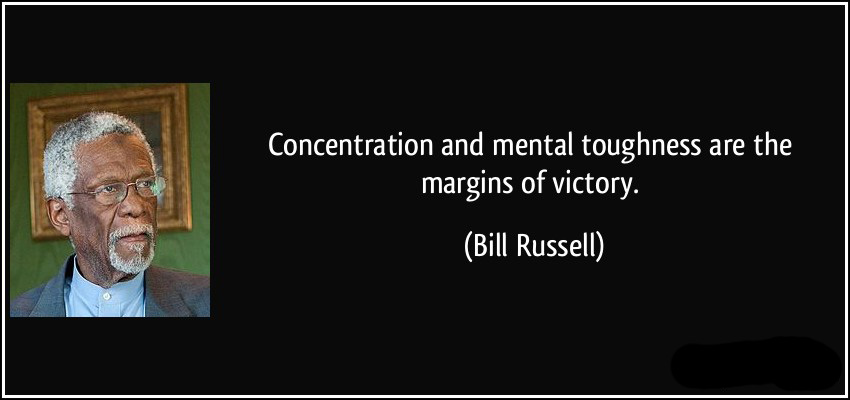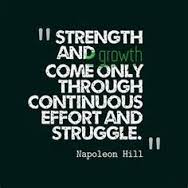Mental Toughness
What is Stress and how to Manage It Effectively
Developing Mental Toughness Through Practical Steps

Developing mental toughness is a gradual process that requires consistent effort, self-awareness, and a willingness to step outside your comfort zone. It begins with cultivating a resilient mindset, which involves embracing challenges as opportunities for growth rather than obstacles. Start by setting clear, meaningful goals that align with your values and aspirations. Break these goals into smaller, manageable steps, and commit to taking consistent action, even when faced with setbacks or discomfort.
A key aspect of mental toughness is learning to manage your thoughts and emotions effectively. Practice self-awareness by observing your inner dialogue and identifying negative or self-limiting beliefs. Replace these with positive, empowering thoughts that reinforce your ability to overcome challenges. Develop emotional regulation skills by acknowledging your feelings without letting them dictate your actions. Techniques like mindfulness, meditation, or deep breathing can help you stay calm and focused under pressure.
Another critical component is building perseverance and grit. Understand that failure and adversity are inevitable, but they are also valuable teachers. When you encounter setbacks, resist the urge to give up or dwell on the negative. Instead, analyze what went wrong, extract lessons from the experience, and use that knowledge to improve and move forward. Surround yourself with supportive, like-minded individuals who encourage your growth and hold you accountable.
Physical health also plays a significant role in mental toughness. Regular exercise, proper nutrition, and adequate sleep contribute to your overall resilience, enabling you to handle stress and fatigue more effectively. Additionally, practice stepping outside your comfort zone regularly. Whether it’s taking on a new challenge, speaking up in a difficult situation, or facing a fear, these experiences build confidence and reinforce your ability to handle uncertainty.
Finally, maintain a long-term perspective. Mental toughness isn’t about being invincible or never feeling doubt; it’s about staying committed to your goals and values, even when the journey is difficult. Celebrate small victories along the way, and remind yourself of your progress. Over time, these habits and mindset shifts will strengthen your mental resilience, allowing you to navigate life’s challenges with greater confidence and determination.

What Is Stress and How Can I Effectively Manage It?
Mental toughness is having the natural or developed psychological edge that enables you to:Generally cope better with the many demands (e.g., competition, training, lifestyle) that are placed on you as a person. It is about staying strong-minded, focused, self-confident, resilient, and staying in control under pressure. Every one of us face Stress problems in our lives. How to manage stress and lead a happy life? Recent research reveals that the body also has the capability of affecting the mind. The way you carry yourself, the way you walk, the way you talk, and the way you project your physical self, affects your attitude and mind to a fairly large extent. Here we discuss the positives to be developed for effective stress management. For several decades now, researches all over the world have asserted that what goes on in the mind affects the body.
Negative thoughts and a negative attitude lead to our feeling low: our heads drop, our shoulders sag, and our breathing becomes shallow. In fact it has been conclusively proved that negative mind trigger off a whole chain of physio-biological reactions, which are designed to make us feel this way. On the other hand, positive thoughts and positive attitudes make us feel good: our heads are held up, we tend to look up, stand taller, breathe deeper and fuller. So you see, the body is directly affected by our mental state.
But, consider this: recent research reveals that the body also has the capability of affecting the mind. The way you carry yourself, the way you walk, the way you talk, and the way you project your physical self, affects your attitude and mind to a fairly large degree. If you always stand straight, with your chest held out and breathe deeply, chances are that you will be projecting a positive outlook. On the other hand, if your shoulders are dropped, and you have a crouched back, you are probably passing through a rather dull phase.
A fascinating and potentially very powerful outcome of this is that we can control our emotions through our bodily actions and postures. Hence, if we want to feel good or positive all we have to do is change our body posture. Though it may vary only slightly from person to person, the overall constituents of a positive frame of mind are more or less the same: Head high, Shoulders pulled back, Deep Breathing, Chest Held Out, and of course the all important SMILE. As Anthony Robbins puts it, “Motion creates Emotion”. The way we move changes, the way we think, feel and behave.
We Are Helping 1000 Businesses Amplify Their Online Presence
The slightest movement of a facial muscle to a rigorous workout can affect our emotions. Just a simple act of smiling can make a vast difference to your state. Extensive research in this area proves that the act of smiling sets of a biological reaction that affects all parts of the body. It stimulates the heart and the lungs. It increases the flow of blood and oxygen to the brain.
The body's excretory organs functions more smoothly clearing the body of harmful toxins. Imagine such a simple act of having such a far-reaching consequences, In fact many doctors are of the opinion that fifteen minutes of lighter laughter on a daily basis, can increase your life span by about 5-10 years. The point is that nothing happens by chance. We have all been created in a very scientific manner. Every gesture, every moment in the body has some purpose – some cause us to feel miserable, doubt our abilities, and curse our luck, while others make us feel good, optimistic and positive about life. We have got to choose the ones we desire.
Key psychological characteristics associated with mentally tough people
- • Self-Belief:
- • Having an unshakable belief in your ability to achieve goals
- • Unique qualities that make you better than your opponents.
- • Motivation:
- • Having an insatiable desire and internalized motivation to succeed (you really got to want it)
- • Ability to bounce back from setbacks with increased determination to succeed.
- • Focus:
- • Remain fully focused on the task at hand in the face of specific distractions
- • Able to switch focus on and off as required
- • Not being adversely affected by others events or your own internal distractions (worry, negative mind chatter)
- • Composure/Handling Pressure:
- • Able to regain psychological control following unexpected events or distractions
- • Thriving on the pressure of competition (embracing pressure, stepping into the moment)
- • Accept that anxiety is inevitable in life and know you can cope with it
Key component of mental toughness is learning how to condition your mind to think confidently and be able to overcome frustration/self-critical negativity (reframe self-talk into what it is you want to occur)
Importance of Being Positive:
“You can program yourself to be positive. Being Positive is a discipline … and the more adversity you face, the more positive you have to be. Being positive helps build confidence and self-esteem” Rick Pitino, University of Louisville Head Basketball Coach
Developing Mental Toughness
- 1. Starts with the right attitude and state of mind (know what your core confidence is all about):
- • Confidence comes in knowing your are prepared and having an unshakable belief in your abilities to reach intended goals
- 2. Program your mind for success ahead of time with positive affirmations and expectations
- • Expect the best from yourself; affirm what it is you are going to do to be successful at with Confident goal oriented statements starting with “I will, I can, I am going to…”)
- Focus on those things you want to occur, rather than things you’re afraid might go wrong
- • Script Success: Visualize yourself performing the way you want (confident, energized, full focus)

- 3. Poise and Composure: learn how to let go of mistakes quickly if things do not go the way you want
- • Key part of mental training is about compensating, adjusting, and trusting
- • If plan A does not work, go to plan B or C
- • Use of “Focal Points” are effective to help focus attention back onto task at hand
- • Be persistent and mentally tough, don’t allow frustration to undermine your confidence/focus
- 4. Take control of Negative Self-Talk: Reframe “stinking thinking” into positive task oriented suggestions
- • Starts with awareness of situations that cause you to get frustrated, rushed, intimidated, lose focus – then reframe the negativity into positive, mentally tough self-suggestions:
- 5. Look at failure as a stepping stone for future achievement:
- • Focus on the process of competing well, winning will take care of itself
- 6. Be a difference person, step up and have a peak performance when it matters the most
- Self-Reflective Assignment: Sustaining Self-Belief – Preparing for Future Events: In the foreseeable future, what things are likely to affect your confidence and self-belief? What will you do about it?
Finding Motivation And Bouncing Back From Difficult Times
Law Of Attraction Relationships
InternetBusinessIdeas-Viralmarketing Homepage
Tweet
Follow @Charlesfrize













